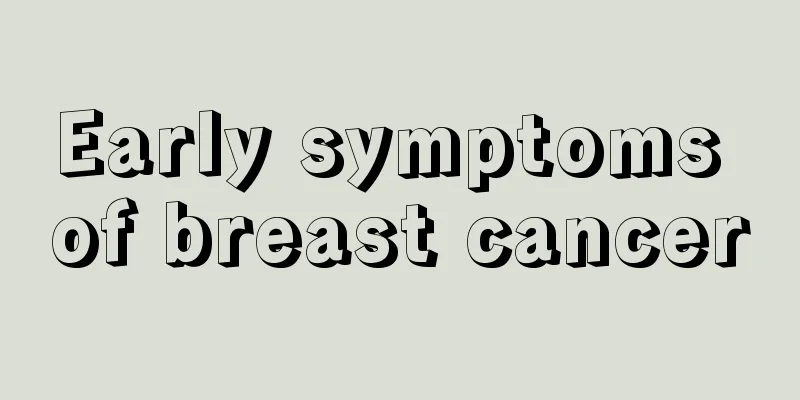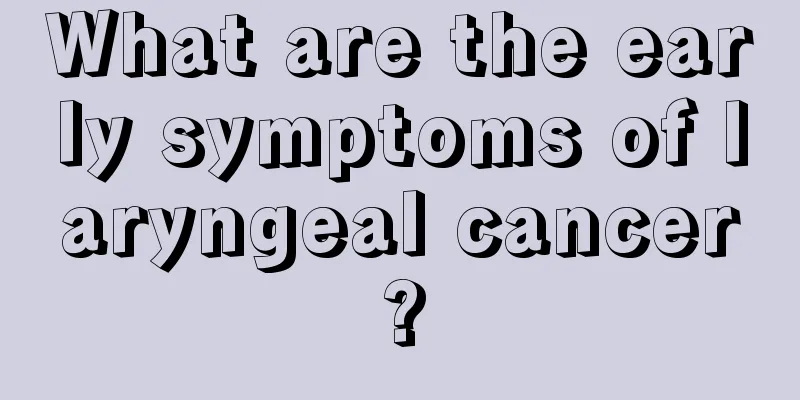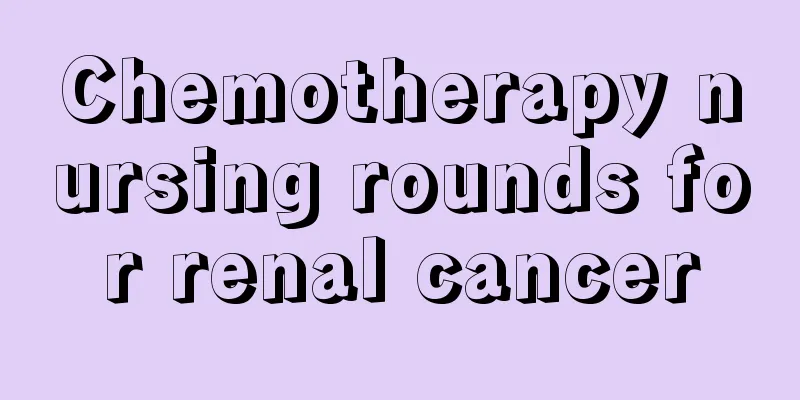Early symptoms of breast cancer

|
There are no obvious early symptoms of breast cancer. As the disease progresses, some precursor symptoms may appear, and you need to be vigilant. The specific situations are as follows: 1. Breast lumps: accidentally discovered, manifested as breast tumors and nodules, you need to be vigilant and go to the hospital as soon as possible; 2. Nipple discharge: especially blood discharge, you need to be vigilant and go to the hospital as soon as possible for further examination to rule out breast cancer; 3. Breast pain: Some early breast cancer patients may experience breast pain and discomfort, especially those with breast hyperplasia or other benign diseases. If you still have breast pain after menopause, you should be vigilant and seek medical attention as soon as possible. What are the types of breast cancer? The pathological classification of breast cancer is relatively complex and is usually divided into the following types: 1. Non-permeable breast cancer: including lobular carcinoma in situ and ductal carcinoma in situ; 2. Early permeable breast cancer: including early permeable lobular carcinoma and early permeable ductal carcinoma, among which early permeable ductal carcinoma is more common in breast cancer; 3. Permeable breast cancer: including permeable non-specific breast cancer and permeable specific breast cancer. Permeable non-specific breast cancer includes permeable lobular carcinoma and permeable ductal carcinoma. Special breast cancer includes medullary carcinoma, mucinous adenocarcinoma, apocrine carcinoma, etc.; 4. Other rare breast cancers: such as inflammatory breast cancer and Paget's disease. Treatment options for breast cancer Treatments for breast cancer include surgical resection, chemotherapy, radiotherapy, endocrine therapy and targeted therapy. The specific methods are as follows: 1. Surgical treatment: Consider whether the tumor is completely removed according to the pathological stage, pathological type and molecular classification; 2. Chemotherapy: preoperative chemotherapy is called new adjuvant chemotherapy, postoperative chemotherapy is called adjuvant chemotherapy, and advanced patients are called palliative chemotherapy; 3. Targeted therapy: Gene immunohistochemistry method to detect more than 3 HER2s, or FISH method to detect HER2 expansion positive; 4. Radiotherapy: Use high-energy X-ray local breast radiation and lymphatic drainage area; 5. Endocrine therapy commonly uses tamoxifen and letrozole. |
<<: How long can one live with advanced bone cancer
>>: How much does it cost to cure nasopharyngeal cancer
Recommend
Which vitamin is lacking in eczema?
From a medical point of view, eczema is an immune...
Is embryonic stem cell therapy good?
With the continuous development of science and te...
Reasons for high red blood cells in urine routine examination
In fact, many people nowadays do not know how to ...
What are the main factors causing colon cancer?
Colon cancer is a common disease in life. Most pe...
What are the healthy diets for nasopharyngeal cancer
In recent years, nasopharyngeal carcinoma has bec...
What is interventional treatment for gastric cancer? It is a therapy
Gastric cancer is a common and relatively dangero...
If your teeth hurt or are loose, eat more of these
If you want to have white and strong teeth, in ad...
What to do if your skin is dry? How to hydrate your skin in daily life?
I often hear people use the word "hydrated&q...
What is the function of glass glue cleaning agent
Glass glue detergent is used to remove the glass ...
What is the cause of aortic valve insufficiency?
Aortic valve insufficiency is most likely caused ...
How to get rid of the onion smell?
Many people like to eat some onion and garlic as ...
Biological therapy can effectively treat early lymphoma
Early lymphoma is not incurable. If it can be dis...
The difference between manta rays and skates
Nowadays, many parents will inevitably encounter ...
Symptoms of skin cancer lung metastasis
Many people have missed the best treatment period...
A family of five ate homemade steamed buns every day. The whole family was diagnosed with cancer. The mother burst into tears: It's all my fault
Today, I want to tell you about this real case, h...









